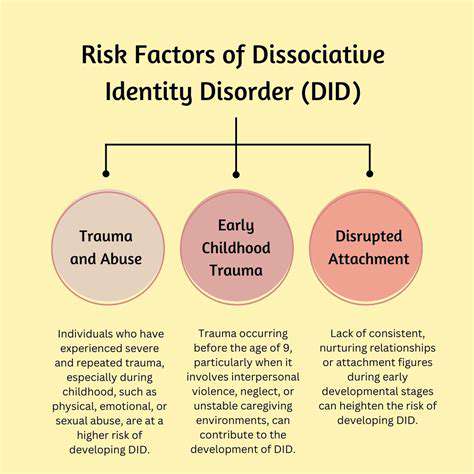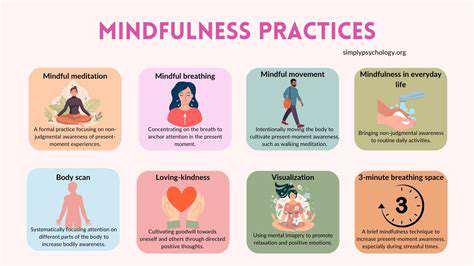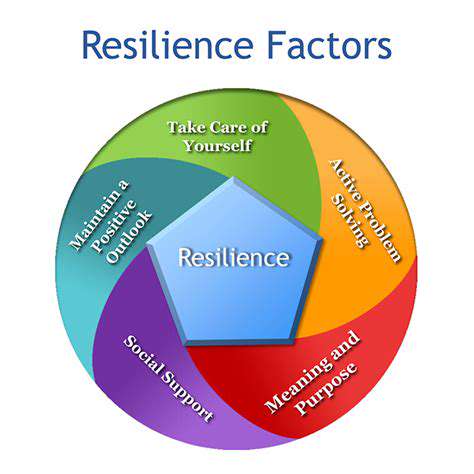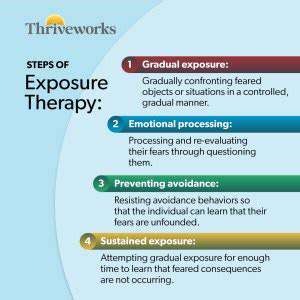Understanding Dissociative Disorders: A Guide to Support
Common Types of Dissociative Disorders
Depersonalization/Derealization Disorder
Depersonalization/derealization disorder is characterized by persistent or recurring feelings of detachment from one's own mental processes or body (depersonalization) or from one's surroundings (derealization). Individuals experiencing depersonalization may feel like they're observing themselves from outside their body, like they're in a dream, or as if their thoughts and feelings are not truly their own. Derealization involves a sense of unreality or detachment from the environment. These feelings can be distressing and disruptive to daily life, often accompanied by anxiety and fear. This disorder can be triggered by stressful events, trauma, or even substance use. Understanding the nuances of these experiences is crucial for effective treatment.
Individuals with this disorder may experience a sense of being disconnected from their emotions, thoughts, or sensations. They might feel like they're observing their actions from a distance, as if they're not truly in control of their body or mind. They may also experience a distorted sense of time or space, and a sense of detachment from their surroundings.
Dissociative Amnesia
Dissociative amnesia involves difficulty remembering personal information, often following a traumatic or stressful event. This loss of memory can range from forgetting specific details of an event to losing entire periods of one's life. It's not simply forgetting a birthday or an appointment; it's a significant gap in memory that can be profoundly distressing and confusing for the individual. The amnesia can be localized, affecting memories of a specific time period, or generalized, encompassing a larger portion of the person's life history. The underlying cause is often linked to trauma, and the recovery process frequently involves addressing the root causes of the amnesia.
The memory gaps in dissociative amnesia can be triggered by stressful or traumatic events. The individual may not have conscious control over the amnesia, and the inability to recall important personal information can significantly impact their relationships and daily functioning. Treatment often involves therapy to uncover the underlying causes of the amnesia and help the person gradually regain lost memories. It's essential to understand that this is a complex disorder with varying degrees of severity.
Dissociative Identity Disorder (DID)
Formerly known as multiple personality disorder, dissociative identity disorder (DID) is characterized by the presence of two or more distinct personality states or identities. Each identity may have its own unique memories, behaviors, and even physical characteristics. These identities may alternate in control of the person's behavior, and the individual may experience gaps in their memory of daily events. The transition between identities can be sudden or gradual, and the person may have little or no control over these shifts. DID is often linked to severe childhood trauma and is a complex condition that requires specialized treatment.
A key feature of DID is the presence of distinct alters or identities. These alters can have different ages, genders, or even different personalities entirely. The individual may experience a sense of disconnect between these identities, and the transition between them can be distressing and confusing. Understanding the role of trauma in the development of DID is crucial in developing effective treatment strategies.
Dissociative Fugue
Dissociative fugue involves a sudden, unexpected travel or wandering away from one's home or usual place of daily activities. This is accompanied by an inability to recall significant personal information, often including one's identity. The individual may assume a new identity in the new location, and their behavior may be drastically different from their usual self. Dissociative fugue is often triggered by severe stress or trauma, and the experience can be extremely disorienting and frightening for the person. It's essential to recognize that this disorder represents a profound psychological response to overwhelming events.
The individual in a dissociative fugue may have no awareness of their past life or identity. They might create a completely new life in a new environment, and the experience can last for days, weeks, or even months. Finding the individual and addressing the underlying trauma is crucial for recovery and regaining their sense of self. Prompt professional intervention is critical in supporting the individual through this challenging period.
The Role of Trauma in Dissociative Disorders

Understanding Trauma's Impact
Trauma, whether experienced directly or witnessed, can have a profound and lasting impact on an individual's mental and emotional well-being. This impact can manifest in various ways, including the development of psychological distress and potentially, dissociative disorders. Trauma often disrupts the normal integration of experiences, leading to fragmented memories and a sense of detachment from oneself and the world.
Trauma's effects can vary significantly depending on the nature, severity, and duration of the experience. Factors such as age at the time of trauma, support systems available, and individual coping mechanisms can all influence how an individual processes and responds to traumatic events. Understanding these complexities is crucial for effective intervention and treatment.
Types of Trauma
Trauma encompasses a wide range of adverse experiences, ranging from physical abuse and neglect to emotional and psychological manipulation. Witnessing violence or experiencing a natural disaster can also be considered traumatic events. Each type of trauma can leave its unique mark on the individual, influencing the development and presentation of dissociative symptoms.
It's important to recognize that trauma isn't solely defined by the severity of the event. Even seemingly minor, repeated experiences of stress or instability can accumulate and contribute to a sense of overwhelm and disorganization that can eventually lead to the development of dissociative disorders.
Dissociation as a Coping Mechanism
Dissociation can emerge as a coping mechanism in response to overwhelming trauma. It's a way for the mind to protect itself from the intense emotional pain and distress associated with traumatic memories. This protective function, while initially helpful, can become maladaptive if it persists or is not adequately addressed.
Dissociation allows individuals to detach from distressing memories and feelings, temporarily alleviating the overwhelming emotional burden. However, this detachment can lead to significant difficulties in functioning and maintaining healthy relationships.
The Link Between Trauma and Dissociative Disorders
A strong link exists between trauma and the development of dissociative disorders. Research consistently demonstrates that individuals with dissociative disorders often have a history of significant trauma. This connection suggests that trauma plays a pivotal role in the etiology of these disorders.
Understanding this link is essential for developing effective treatments. Trauma-informed approaches to therapy recognize the importance of addressing the underlying trauma and its impact on the individual's psychological well-being.
Symptoms of Trauma-Related Dissociation
Trauma-related dissociation can manifest in various ways, from depersonalization to derealization, and even dissociative amnesia. Depersonalization involves feelings of detachment from one's own body or thoughts, while derealization creates a sense that the environment is unreal or distorted.
Dissociative amnesia involves the inability to recall important personal information, often related to a traumatic event. Identifying and understanding these symptoms is crucial for appropriate diagnosis and treatment.
The Importance of Trauma-Informed Care
Trauma-informed care recognizes the pervasive impact of trauma and seeks to create supportive environments that acknowledge and address the needs of individuals who have experienced trauma. This approach emphasizes safety, trustworthiness, and empowerment to promote healing and recovery.
Incorporating trauma-informed principles into various settings, including healthcare, education, and social services, is crucial for facilitating positive outcomes for individuals affected by trauma. This approach emphasizes creating environments that prioritize safety, validation, and a sense of control for individuals struggling with the aftermath of trauma.

Read more about Understanding Dissociative Disorders: A Guide to Support
Hot Recommendations
- AI Driven Personalized Sleep Training for Chronic Insomnia
- AI Driven Personalization for Sustainable Stress Management
- Your Personalized Guide to Overcoming Limiting Beliefs
- Understanding Gender Dysphoria and Mental Health Support
- The Power of Advocacy: Mental Health Initiatives Reshaping Society
- Building a Personalized Self Compassion Practice for Self Worth
- The Ethics of AI in Mental Wellness: What You Need to Know
- AI Driven Insights into Your Unique Stress Triggers for Personalized Management
- Beyond Awareness: Actionable Mental Health Initiatives for Lasting Impact
- Creating a Personalized Sleep Hygiene Plan for Shift Workers











